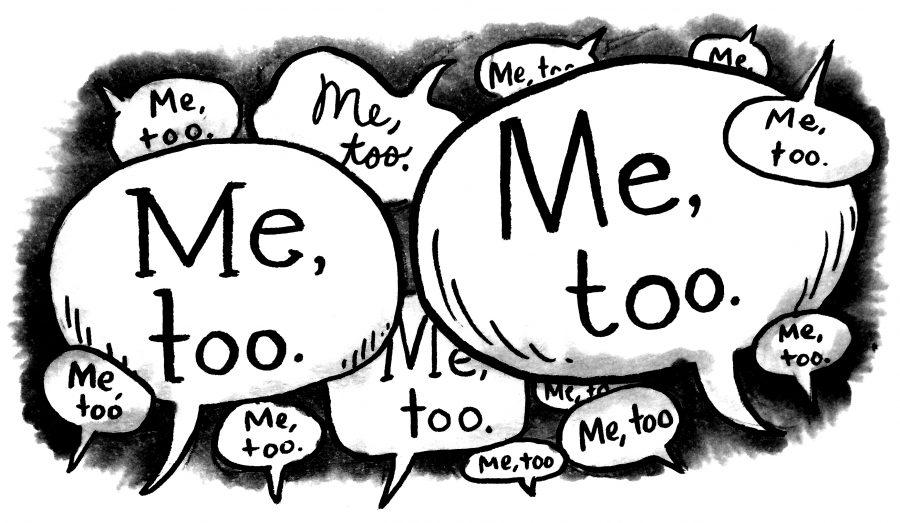The long string of sexual assault allegations made against Harvey Weinstein wasn’t breaking news to many women in entertainment. Yes, their phones may have buzzed with push notifications all week, and yes, the NPR updates may have been unavoidable. But it wasn’t news. Even if they’re not one of the more than forty victims speaking up about Weinstein, women in entertainment have had their run-ins with abuse, mistreatment and ever-present toxic masculinity.
Toxic masculinity takes on a snake-like form in entertainment circles, which perhaps explains why the general populace is amazed by the confirmation of what creative professionals have known for decades. The entertainment industry advertises itself as progressive, respectful and accepting. In reality, it’s a playground for men who can’t see women as actual people.
The idea that broadly supporting feminism excuses male artists from scrutiny obscures reality. Cognitive dissonance plagues entertainment communities other than just the rich, elite echelons. If this music blogger gave Courtney Barnett’s new album a stellar review, he would never have sex with an intoxicated woman. If this art student talked about how much Georgia O’Keeffe influenced him, how could his body language make a woman uncomfortable?
And it’s more than just sexual assault, too. From KVRX DJ Shamika Kurian’s observations, the issue of sexual assault stems from smaller but still problematic behavior. “(Sexism in KVRX) starts with things like, ‘Oh, your music sucks.’ It starts with that level of disrespect and just gets worse and worse,” the public relations sophomore said.
“We don’t take girls seriously enough in every sense of what we’re talking about, and when it comes to bigger things, we don’t believe them and don’t think that they’re capable of having a valuable or genuine opinion.”
The repression of women’s voices that we now see in allegations against Harvey Weinstein takes root in the behavior Kurian experiences right here in Austin.
“Liberal Hollywood” is a smear often used by conservatives upset that actors voice popular opinions, but the term is accurate in its characterization of entertainment circles as morally cavalier and detached. Those in positions of power reference their campaign donations and political Oscars speeches, but these gestures don’t come from personal conviction. They’re just masks. Veiled by an illusion of righteousness while simultaneously marginalizing women, male filmmakers can forward their own agendas of personal gain.
This paradox is what makes it so easy to ignore toxic masculinity in the entertainment industry. Real misogynists disempower women through the system — like Trump, right? Weinstein supported Hillary, and liberals thought that exempted him from any possibility of wrongdoing. If they had looked past his politics, maybe they would have noticed his own system of demeaning women and drowning their voices afterwards.
Toxic masculinity thrives in elite entertainment communities, but this problem isn’t isolated to an exclusive scene of filmmakers. Misogyny isn’t confined to The Weinstein Company — or any other one record label or talent agency — and it doesn’t only manifest in sexual violence. Misogyny exists in many forms and at all levels of the entertainment industry. If artists and entertainers want to prevent sexual assault in their work environments, they must eradicate abusive behavior in its many different forms. This undertaking includes learning how to look beyond seemingly progressive abusers’ politics.
We cannot remove sexual assault from the larger narrative of misogyny in the entertainment industry. If we want to solve broader issues of sexual assault, we also need commitment to tackling toxic masculinity at large, no matter which disguise it wears.
Larcher is a Plan II and rhetoric and writing sophomore from Austin.





















